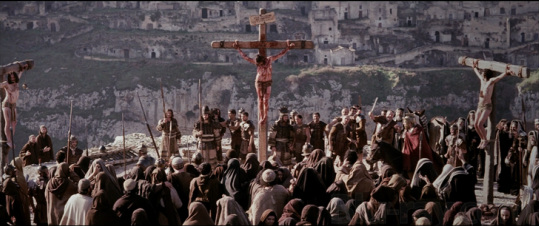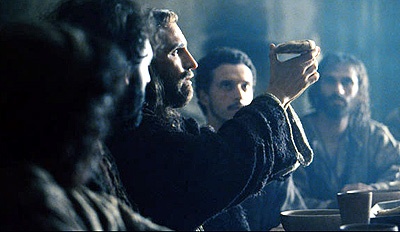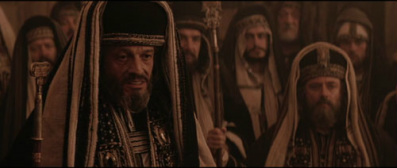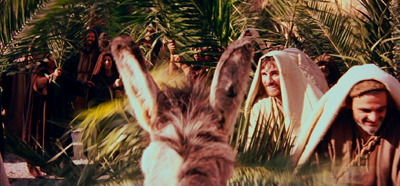 (9:3) [Israelites] stood up in their place and read from the Book of the Law of the LORD their God for a quarter of the day; for another quarter of it they made confession and worshiped the LORD their God. (9:5) Then the Levites...said, "Stand up and bless the LORD your God from everlasting to everlasting. Blessed be your glorious name, which is exalted above all blessing and praise. Nehemiah 9:7 (ESV) “You are the LORD, the God who chose Abram and brought him out of Ur of the Chaldeans and gave him the name Abraham. You found his heart faithful before you, and made with him the covenant to give to his offspring the land of the Canaanite, ...And you have kept your promise, for you are righteous."
0 Comments
 Pierce argues that if an ethic and national future exists for the state of Israel, then it isn't based upon God's “unconditional” covenants with Abraham and David (the traditional Dispensational view). Based upon his exegetical study, he argues that none of the covenants in fact are unconditional. Instead, each of the covenants is presented in a three-fold pattern where: 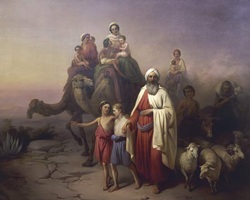 The March of Abraham, by József Molnár Genesis 12:1-4 (ESV) “Now the LORD said to Abram, 'Go from your country and your kindred and your father's house to the land that I will show you. And I will make of you a great nation, and I will bless you and make your name great, so that you will be a blessing. I will bless those who bless you, and him who dishonors you I will curse, and in you all the families of the earth shall be blessed.' So Abram went, as the LORD had told him, and Lot went with him. Abram was seventy-five years old when he departed from Haran.”  Christopher Wright, an Old Testament scholar and author, has written an excellent book studying Jesus as found in the Old Testament. Here an overview will be presented of each chapter in the book:
 Religion How does Man receive salvation? This has been the primary question of every culture since Man can remember. Thus, every religion provides a way to save ones self, except Christianity, which states humans cannot save themselves and require a savior.  Faith in Jesus Christ The Gospel Message. Who is saved? While this is not a question Christians should be asking, it is probably the question most frequently asked. The answer is those who've heard and truly responded to the Gospel. The Gospel appears throughout Scripture as it is contextualized for various cultures (Luke 24:44-49; Acts 2:14-39; Acts 17:22-31; 1 Corinthians 15:1-11) and can all be distilled to these basic tenets: Every person has broken their relationship with God due to sin and the punishment for sin is physical and spiritual death (Romans 6:23). However, God's mission has been to seek all humans in order restore His relationship with them. Thus, God became a man, His son Jesus Christ, to take the penalty for sin and offer His right standing so that whoever has faith that Christ took their sin and repents will receive forgiveness for their sins. Those who have been saved are called to proclaim the Gospel to all others. Accepting the Gospel is a spiritual transaction, not an assent of belief, opinion, or understanding. Hence, anyone the transaction has been conducted for is saved, even if their theology of the process is deficient.  The Gospels only record Jesus speaking seven times while hanging on the cross. Since the cross was the climax and fulfillment of His mission, these words are not idle or inane. Listed chronologically and explained below, these words included: 1
 Is Man basically good? Or evil? One's worldview ultimately boils down to whether or not mankind needs to be regenerated or not. The logical outflow from there informs the rest of an individual's beliefs. If humans don't need to be regenerated, how does one account for evil? Does evil exist at all? If humans do need to be regenerated, what has corrupted them? How are they restored? Thus, the origins of Man and his actions are foundational to the understanding Man's present condition and next steps. Jesus rose from the dead on Sunday resulting in THE day of Conquest! When the women visited the tomb they found the soldiers gone and the stone rolled away...and it was empty. When they reported it to the disciples, Peter & John found it empty. Then Jesus started making many post resurrection appearances, first with Mary Magdalene & the other women, then the two disciples on the road to Emmaus, then finally to the disciples in multiple instances starting in the Upper Room. Jesus commissioned His disciples to continue His mission to all the nations of the world in his authority. He then appeared to them over a period of 40 days opening their minds to all the Scriptures said about Him. These 40 days included a trip to Galilee to receive the Great Commission, and then again in Jerusalem He gave them the Great Commission (again!) before blessing them and ascending to Heaven awaiting His second coming.
Saturday was the Sabbath, a day of rest in which no work was done...except the guards who were busy guarding the tomb, but they weren't Jews.
Good Friday, THE day of consummation, began early with a trial with Annas, a Jewish trial at Caiphus house (where Peter denied Christ), a trial in the temple with the Sanhedrin (when Judas hung himself), a Roman trial with Pilate, a Galilean trial with Herod Antipas, & final trial with Pilate again as he tried to avoid crucifying Christ via flogging, scourging, and releasing Barabbas. Once convicted for sedition (misinterpreting Christ's kingly claims), Christ was mocked by Roman Soldiers with a crown of thorns, then stripped and beaten. Christ was then led to Golgotha carrying His own cross (until Simon of Cyrene had to intervene), where He was nailed to the cross, which was erected between two criminals and bore the message “This is Jesus of Nazareth, the King of the Jews.” The soldiers, Pharisees, & crowds derided Christ, but He prayed for their forgiveness. When the thief repented Christ promised him paradise. Christ then assigned his familial responsibilities to John. At noon when darkness covered the land Christ lamented separation from God as He took on God's wrath. Christ then fulfilled Psalm 69:21 saying “I thirst.” Christ died after two final words: “It is finished,” & “Father, into your hands I commit my spirit” as Jesus voluntarily died at the completion of His mission. At His death there was an earthquake in which the temple curtain was torn and saints were resurrected and appeared to many, resulting in the belief of many including the Roman Centurion. His body pierced to confirm death, Jesus's body was laid in a tomb covered with a stone and guarded by Roman soldiers.
Consecration occurred Thursday, with divine preparations for the Passover meal and the Upper Room Discourse where Jesus' washed His disciples' feet, identified His betrayer, redefined greatness, foretold Peter's denials, and instituted the Lord's Supper. The Discourse continued covering worldly opposition, the Holy Spirit, and prayer for all believers while walking to the Garden of Gethsemane. Once there, Jesus prayed all night asking God to change the plan, but Jesus accepted His mission as Judas arrived with soldiers to arrest Jesus.
Wednesday was a day of Conspiracy as Judas agreed to betray Jesus. Judas goes to religious leaders asking how much they will pay Him to turn Jesus over to them. They give him 30 pieces of silver and speed up their plans to take Jesus now instead of waiting until the crowds disperse.
On Tuesday, a day of Controversy, the Twelve find the cursed fig tree withered which Jesus uses an illustration for Faith, stating that even a little bit of faith can move mountains. Then Jesus' authority is questioned in the Temple courts by three groups . Deflecting questions on His authority, paying taxes and resurrection, Jesus asks questions regarding John the Baptist, and three parables on Israel's displacement when none will answer, and His relationship to David. Once silence reveals the guilty, Jesus pronounces woe oracles. Later, Christ gave the Olivet Discourse to His disciples to speak prophetically about the temple which they marveled, signs of the end times, and His own second coming as they walked to the Mt. of Olives. Jesus concluded with five parables on being watchful and faithful.
Jesus then returned from Bethany Monday morning beginning a day of Confrontation. First He cursed the fig tree for making a splashy show of leaves but not having any fruit for He was hungry. This was an enacted parable for the Temple cleansing that immediately pursued (this is actually the 2nd Temple cleansing in Jesus' ministry).
Since the gospels are Passion narratives with extended introductions, and the crux of the Christian faith occurred in this ten day span, correctly chronicling its key events is paramount. Only after piecing the Gospels together chronologically can a true picture of what transpired be accounted for. The events of Passion week began Friday, “six days before Passover” (Mark 12:1), in Bethany at the home of Lazarus and his two sisters Mary and Martha. The night Jesus arrived, probably after sunset, Mary anointed Jesus' feet with costly perfume, wiping them with her hair. Jesus' defends this act as preparation for His burial when Judas Iscariot complained of the unnecessary waste.
 I managed the book department of a retail store when I was in high school around the time the Harry Potter novels were being made into movies. The new book release dates were being shuffled to coincide with new movie releases, and since our store was adjacent to a movie theater I was beleaguered by questions and rumors from fanatics day in and day out. I developed an aversion to all “wizard” things and to this day I still stubbornly refuse to read the novels (or even watch the movies). Yet, I must acknowledge that my bias against J.K Rawlings has nothing to do with her books, for how can I dislike something I've never experienced? In fact, logic states that they would be very entertaining, for how can the testimonies of so many be wrong? No, my disdain stems from the hype and my bad experience with the fans surrounding J.K. Rawlings' works. I know I'm not alone in the way I've reacted, for tragically this is precisely the way millions of people have reacted to the story of Jesus Christ. They've become turned off to Jesus Christ simply because they're sick and tired of hearing about “Christian” things and may have had bad experiences with “Jesus Freaks.” Just as the only way for me to overcome my prejudice toward Rawlings is to read her books, so too must others overcome their prejudice toward Jesus by reading his books, the gospels. This is the goal of Philip Yancey in his book “The Jesus I Never Knew,” as he attempts to strip away the distracting (and often erroneous) hype that encrusts the gospel of Jesus Christ. 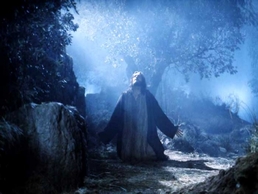 Is Jesus A way? or THE way? “saying, 'Father, if you are willing, remove this cup from me. Nevertheless, not my will, but yours, be done.' And there appeared to him an angel from heaven, strengthening him. And being in an agony he prayed more earnestly; and his sweat became like great drops of blood falling down to the ground” (Luke 22:42-44). Is Jesus the only way? Or is Jesus a way among many alternatives? If paths to the Father exist other than the cross, then Jesus' anguish in Gethsemane doesn't make sense. Jesus entirely life and purpose has been about His mission, and yet now at the time of its consummation it would seem to appear that He is having second thoughts about completing it. For Jesus knows the true cost of what it will take to pay the penalty for the sin of man and to achieve justice, satisfying the wrath of God.  "not just my feet..." “Peter said to him, 'You shall never wash my feet.' Jesus answered him, 'If I do not wash you, you have no share with me.' Simon Peter said to him, 'Lord, not my feet only but also my hands and my head!' Jesus said to him, 'The one who has bathed does not need to wash, except for his feet, but is completely clean.'“ (John 13:8-10). In the upper room where Jesus was to celebrate the historic Passover meal with His disciples and institute the Lord's supper, Jesus quelled an argument about who would be the greatest by taking the form of a menial servant and washed their feet. However, when Peter refused, the Lord's response indicates something greater is being represented than a simple foot washing, for if Peter denies being washed he'll have no part in Christ.  Was it more than just silver? Then Judas Iscariot, who was one of the twelve, went to the chief priests in order to betray him to them. And when they heard it, they were glad and promised to give him money. And he sought an opportunity to betray him. (Mark 14:10-11) There has been much speculation regarding Judas' motives in betraying Jesus, but in the end they are just that speculation. The only reasons the Gospels record are those of greed.  those in prison...for the sake of the gospel “And the King will answer them, 'Truly, I say to you, as you did it to one of the least of these my brothers, you did it to me.'” (Matt 25:40) “Then he will answer them, saying, 'Truly, I say to you, as you did not do it to one of the least of these, you did not do it to me.'” (Matt 25:45) “And these will go away into eternal punishment, but the righteous into eternal life." (Matt 25:46) Jesus concluded His Olivet discourse by speaking of the final judgment that will commence at His return, probably to impress “upon his disciples the gravity of the commission to be heralds of the kingdom of the rule of God” (Howell, 302). To convey such eschatological matters, Christ borrowed a well known “end of day” scene in Palestine where “shepherds commonly herded sheep and goats together but separated them at day's end (sheep, with heavy wool, needed less shelter than goats)” (Elwell, 754). The sheep (animals of greater value and lighter color) represent those who will be redeemed while the goats represent those who will be damned. As Jesus recalls the great works of the sheep and great omissions of the goats to Him, both groups question when they ever did/didn't do these things for Jesus. Jesus then identifies that whoever served “the least of these my brothers” served Jesus. The crucial question then becomes, who are these “brothers” that we should be serving?  The truths certainly add a whole new dimension of fear to the commission of sin, for it is entirely possible for the Lord to return during our “worst moment.” Ironically, the truths revealed in the Olivet Discourse about being watchful for the end of all seem to entail a consistent living of the Christian life as if the end is never coming. For if we live each day expecting it to be the end, we will fail to be fruitful and consistent in pursuing God's Mission (as the some of the Thessalonians had ceased to be productive, awaiting the end of all things). In another sense it questions the Western notion of retirement, for we may retire from our earthly career but we should never retire from pursuing God's Mission. 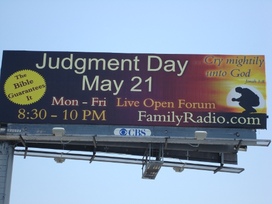 5-21-11 passed & we're still here “Therefore, stay awake, for you do not know on what day your Lord is coming.” (Matt 24:42) Every generation seems to have a misguided teacher who fails to heed the teachings of Jesus when asked about the end of the Age and fulfillment of His Kingdom. Beginning the Olivet Discourse, Jesus was clear through these five parables that life would continue as normal and believers are to live “responsibly, compassionately, courageously, and expectantly during the Lord's absence...” until “the end” (Howell, 301).  We are the “Pharisees of Today.” The 7 Woes of Christ contextualized for a modern audience.
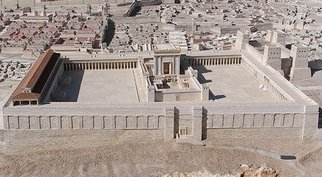 On Monday of Passion week, Jesus is confronted by the chief priests and elders of the people while He was teaching in the temple courts. After He deflects their question regarding whether He has authority to teach, He trounces them with three questions in parable form regarding whether they are citizens in the Kingdom community of God for they've failed “to pay attention to the initiatives taken by by God” (Nolland, 867).  In biblical times when the lingua franca was koine Greek, δόξα referred to one's “reputation” in regular Greek literature. However, since the New Testament consists of Greek words filled with Hebrew meanings, δόξα took on a new meaning when the Hebrew word for the experience of God's presence (literally a form of the word “heavy” in Hebrew...one might say God's presence was a “weighty matter”) was loosely translated as “God's reputation” in the Septuagint (LXX, the Greek version of the Old Testament) (Larkin, William J.). The author John, being a good Hebrew (along with most other biblical writers), still understood the original Hebrew sense of the word “glory” and so it took on a unique concept – "manifested majesty." The “weight” of God was thought of as His essential being manifested for all to see. Since, God is hidden, or better invisible, God reveals Himself through Jesus Christ, God's literal manifested essential being of majesty. As a result, Jesus taught that He “exegetes” the Father, repeatedly stating variations of “Whoever has seen me has seen the Father” (John 14:9). |
AuthorBrett Yardley: Categories
All
Archives
January 2019
|


